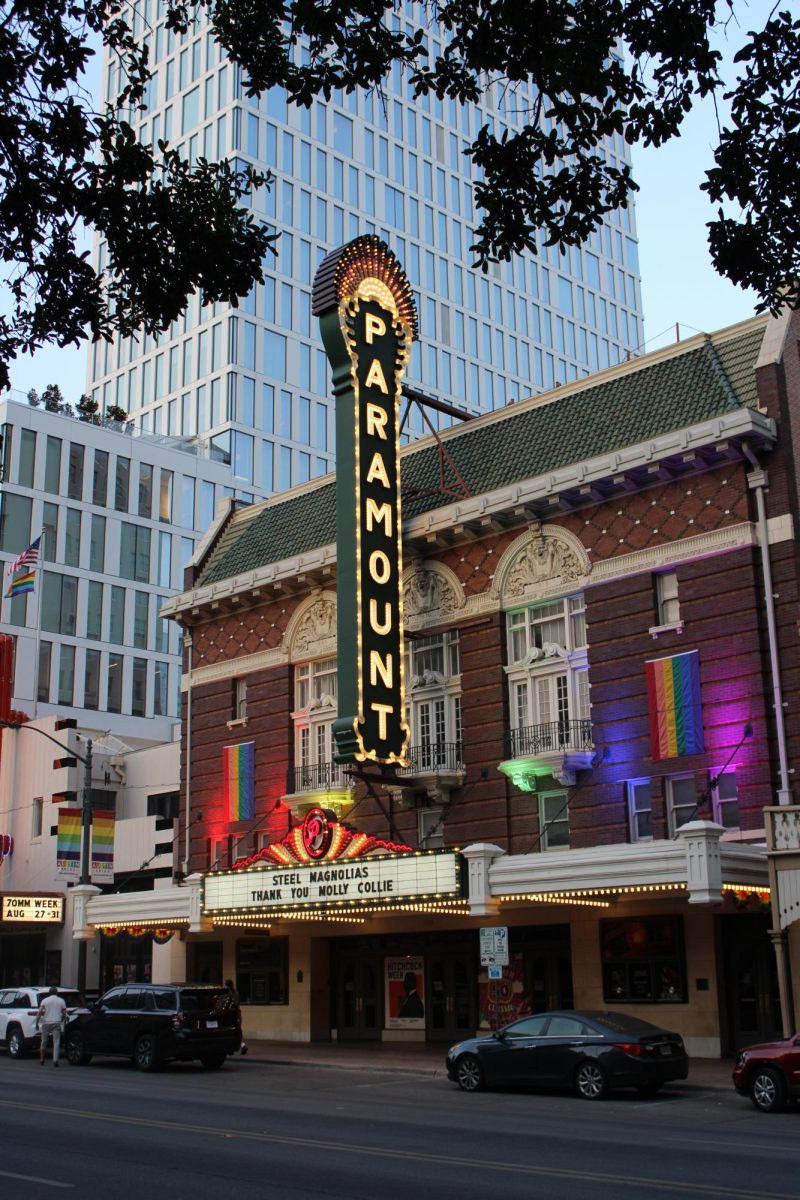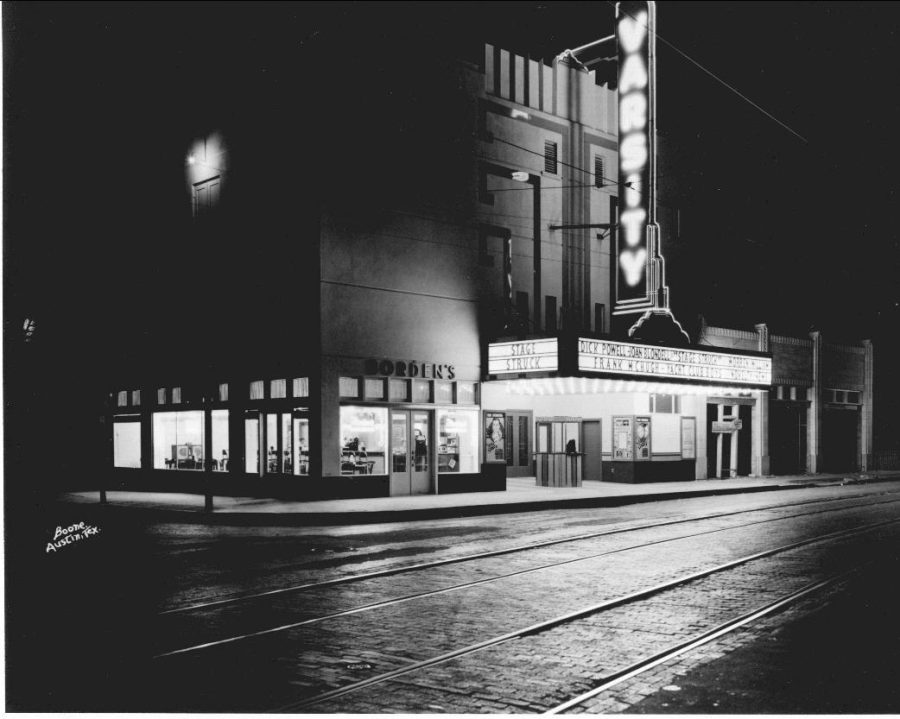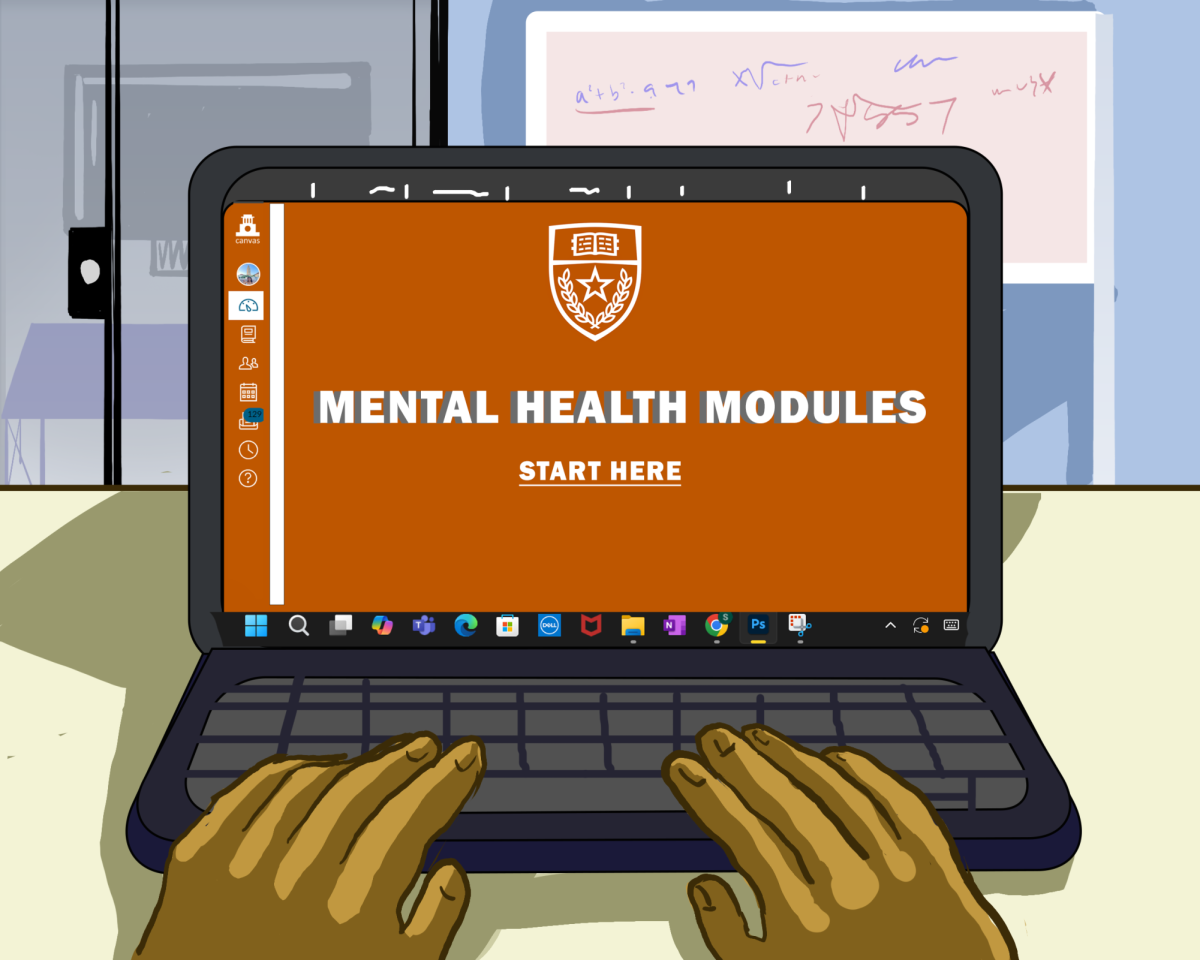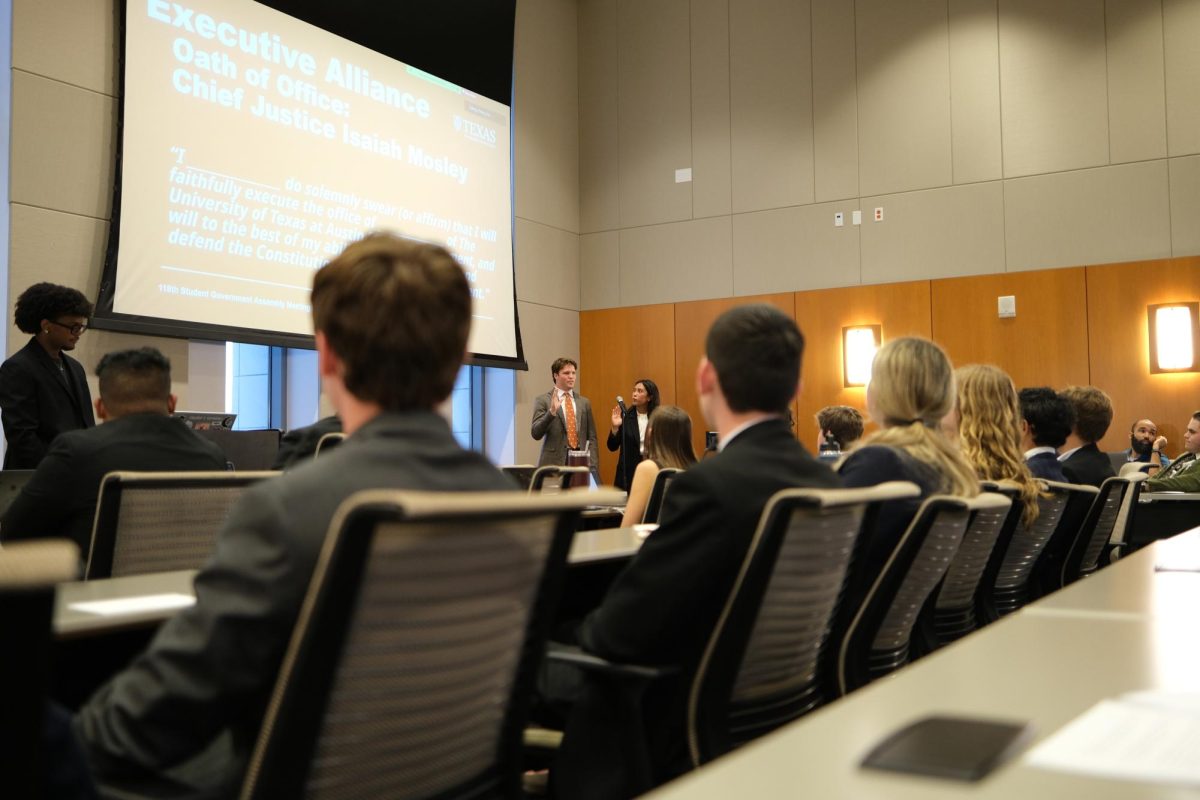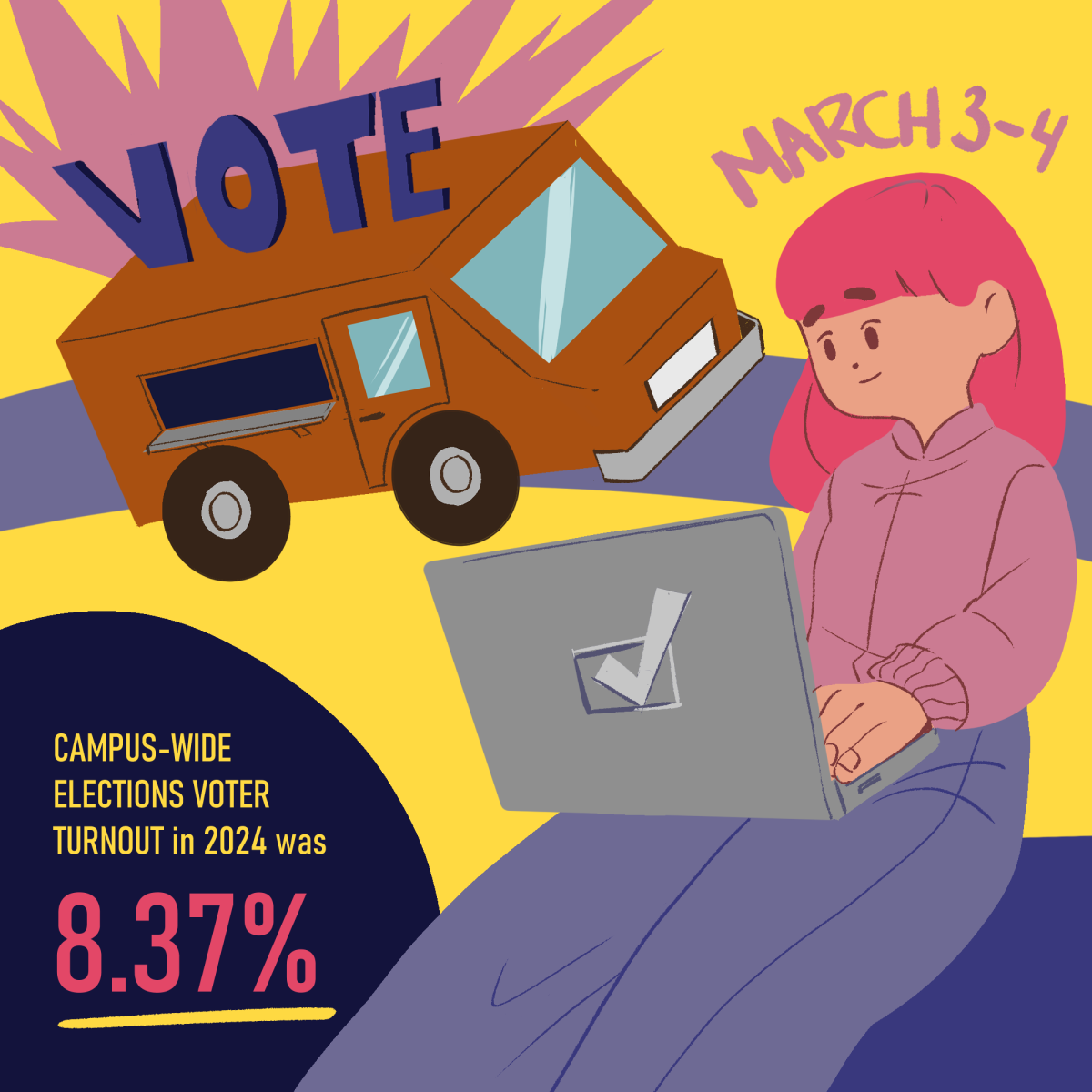Editor’s note: Executive candidate JD Romero, who published under the name Juan Rodriguez, and Justin Doud, an associate justice for the Student Government Supreme Court during the proceedings, both wrote for The Daily Texan opinion department in the spring 2024 semester. Doud currently works for the Texan photo department and has since resigned as a justice. Romero serves as a voting member of the Texas Student Media Board, which oversees the student managers of Texas Student Media entities, including the Texan. The opinions stated by the sources in the story do not necessarily reflect the opinions of the entire Student Government.
The Office of the Dean of Students overturned a UT Student Government Supreme Court decision Monday that would have disqualified Hudson Thomas and Thierry Chu from the executive alliance race. Thomas and Chu gathered the required 4,005 votes, making the pair the president- and vice president-elect for the 2025-26 academic year.
The Student Government Supreme Court disqualified the Thomas-Chu executive alliance on March 9 because of a complaint filed by JD Romero, another executive alliance candidate, for failure to disclose “in-kind” efforts, or non-monetary donations for campaign use, and violations of campaign finance rules.
In a ruling written on March 9 by UT Chief Justice Isaiah Mosley, the Student Government Supreme Court said that the Election Supervisory Board should have held a hearing on the issue and that the Thomas-Chu alliance violated the $511 spending cap for UT Student Government presidential campaigns. Romero accused the Thomas-Chu alliance of spending upwards of $861 in total campaign expenditures. UT Election Code states any campaign whose expenditures exceed 120% of the set limit “mandates disqualification,” which for executive alliance campaigns amounts to $613.20.
“There was no conceivable situation where the Dean of Students involvement in this matter would be required, other than if the accused personally reached out to the Office of the Dean of Students to subvert the authority granted to the ESB,” Mosley wrote in his opinion. “This action undermines the ESB’s duty to adjudicate complaints in a neutral manner and denies the petitioner a fair and impartial review.”
Romero said he asked the Election Supervisory Board if he could appeal the board’s dismissal of the disqualification and was told he was permitted to do so.
In his response to the appeal, Thomas said he did not violate the Campus-Wide Election Code or the Student Government Election Code because the videography equipment belonged to his staff. Thomas and Chu did not respond to multiple requests for comment at the time of publication.
“All videographers were listed as Campaign Agents/Workers in the Financial Disclosures and were individually recruited,” Thomas said in his response. “It must be noted that said workers were not paid for their services, and the professional equipment used was not specifically acquired for the campaign but rather already owned by the students who use said equipment outside of campaign purposes.”
In an email sent to Student Government officials on March 10, the Office of the Dean of Students overturned the court’s decision, citing a violation of the court’s governing documents. The office forwarded the email to the Texan but did not comment further.
“Holding this hearing does not align with the cancellation directive shared with the Election Supervisory Board regarding due process, nor does it align with the appeals process in the Campus-Wide Election Code as no hearing was held and no decision was made by the Election Supervisory Board,” the Office of the Dean of Students said in the email. “As a sponsored student organization under the Office of the Dean of Students, it is imperative that Student Government provide fundamental due process rights to their fellow students.”
Ty Gribble, chair of the Election Supervisory Board, said the board set a hearing on March 5 to rule whether the Thomas-Chu executive alliance violated campaign rules. He said the board was instructed by the Office of the Dean of Students not to give the complaint a hearing, stating the complaint lacked the specificity needed for Hudson to prepare a response, and the board dismissed the complaint later the same day.
Mosley said the Office of the Dean of Students told him on March 8 that a review of the Student Government Supreme Court’s decision would occur.
“For the Dean of Students to intervene and say, ‘You don’t have this power. You can’t do anything about it. We’re going to unilaterally decide who gets to win an election, who gets to violate election-specific codes, and who doesn’t?’ That’s concerning to me,” Mosley said. “As someone who cares about the University, as someone who has been on this court for three years, I have never seen such an overreach like the one that we just have had happen.”
Gribble said the controversy will factor into how he will advise the board to revise election codes in the future. The Office of the Dean of Students said it would adjust the process for future election complaints with current and newly elected Student Government officials.
“It could have gone up the ladder properly and it not been a big problem, but ultimately, the Dean’s decision to intercede before the ESB could get their hands on it and hold their hearing, they may think that protects student due process more, but it seems like there are other concerns about JD Romero’s right to due process,” Gribble said. “It’s a can of worms that has been opened, and so the problems will remain.”
Both Mosley and Gribble said Thomas and Chu are the president- and vice president-elect for the 2025-26 year. Before the election results were released, Romero sent a cease and desist to the Office of the Dean of Students, warning of possible legal action if the office overturned the Student Government Supreme Court’s rulings. No information about the Office of the Dean of Students’ next steps has been released.
News Editor Vivien Ayers and News Desk Editor Matthew Gomez contributed reporting for this story.





